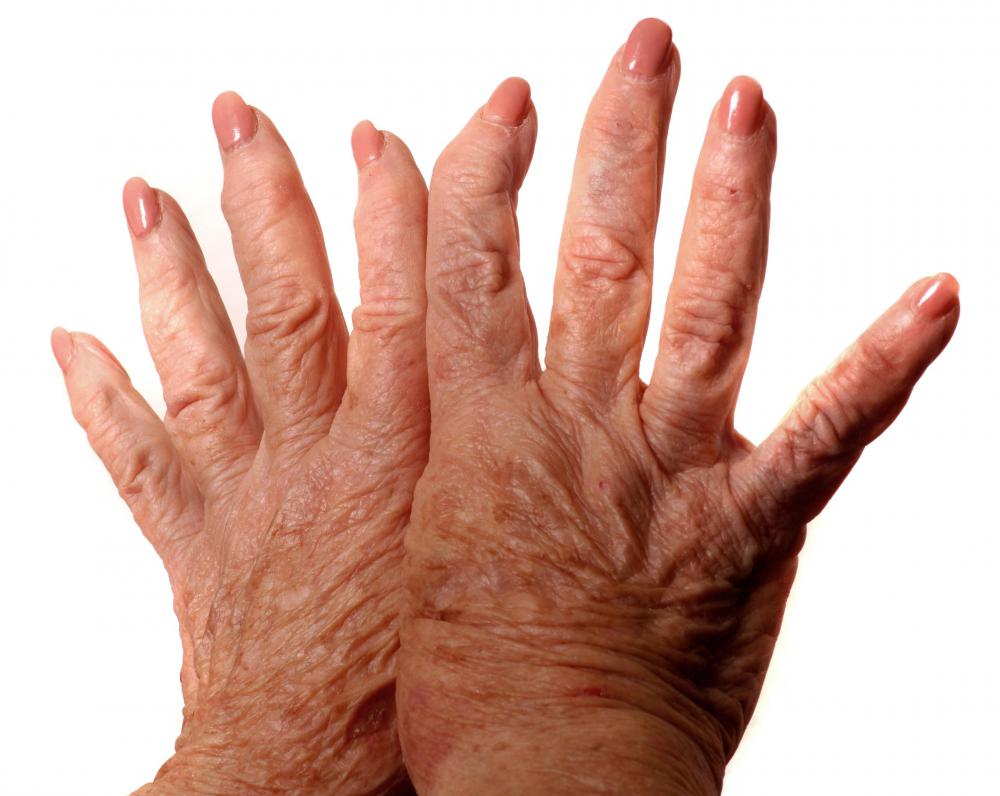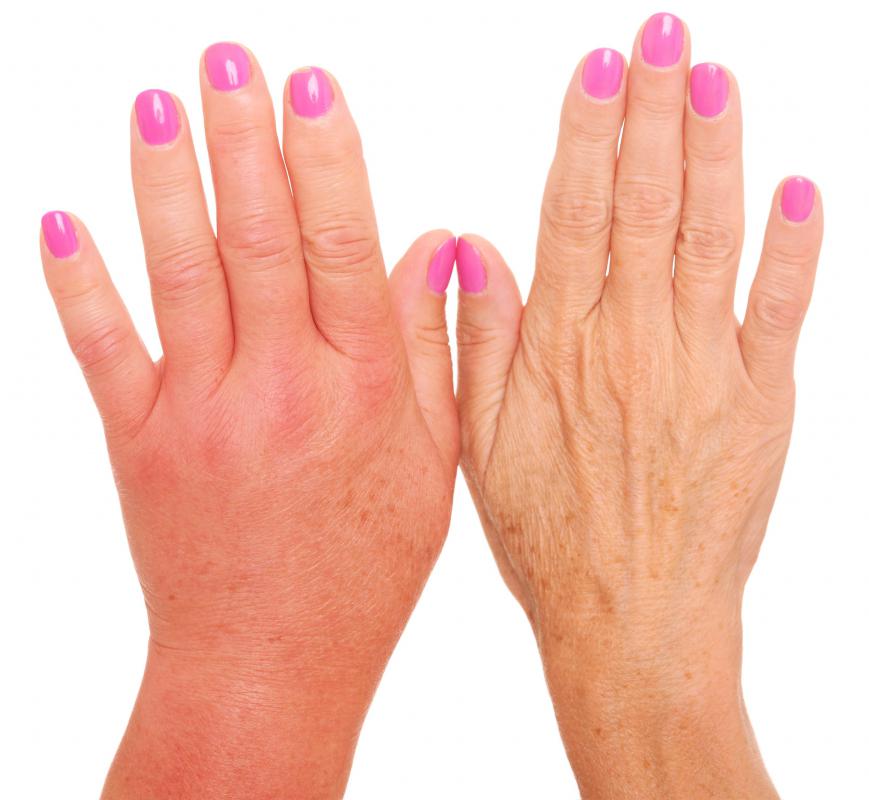At TheHealthBoard, we're committed to delivering accurate, trustworthy information. Our expert-authored content is rigorously fact-checked and sourced from credible authorities. Discover how we uphold the highest standards in providing you with reliable knowledge.
What is Acute Lupus?
Acute lupus is a temporary, severe inflammatory reaction produced by the body. Lupus can affect various parts of the body, including the kidneys, skin and blood cells. The body's immune system begins to attack its own organs, which causes pain and inflammation. Acute lupus might suddenly flare up in an organ system and disappear as quickly as it arrived. Chronic lupus is lifelong pain, and acute lupus is usually fleeting.
Acute lupus falls under the category of acute lupus erythematosus. This is a general term for immune-related diseases. A physician can positively identify a bout of acute lupus using a checklist of symptoms.

Lupus is a disease of the human immune system. It occurs more often in women than in men. Symptoms of lupus vary with each individual, but common signs of lupus range from strange skin rashes to acute organ pain and tenderness. The causes of this condition might include environmental triggers, such as medication, sunlight, stress, hormones or even breast implants. Doctors believe that lupus might have a genetic component, because it seems to run in families.
There are several types of lupus. The most common type, discoid lupus, causes rashes to form on the skin. A common symptom of discoid lupus is a "butterfly rash" that forms across the cheeks and nose.

Systemic lupus is often a chronic disease that affects multiple organs in the body. Affected individuals with this type of severe lupus often experience pain and swelling in several different body parts. During periods of inflammation called "flares," these individuals are in pain, but the flare often ends suddenly. Someone with this type of systemic lupus will have flares throughout his or her life.

Drug-induced lupus is similar to acute lupus, because it is a direct reaction to a medication. It can cause systemic symptoms that affect several organ systems. Acute drug-induced lupus is a temporary reaction. Neonatal lupus is the fourth type, and it occurs only in babies whose mothers have systemic lupus. These infants might have severe physical issues such as heart problems or liver problems.

There is no cure for lupus, but there are medications that an individual can take to relieve the symptoms of the disease. Lupus treatments include opiates for pain, immunosuppressive drugs, corticosteroids and cytotoxic drugs such as cyclophosphamide or hydroxychloroquine. Steroid drugs are considered the last option, because they can negatively affect internal organs, but they do relieve many lupus symptoms.
AS FEATURED ON:
AS FEATURED ON:



















Discussion Comments
@tolleranza - I do not know exactly what causes the lupus to cause the tiredness that is often described with lupus, but I have read that it is common in lupus patients. I also read that it is important that the patient’s family recognizes the tiredness as part of their disease as opposed to laziness!
And I think of it like depression, depression is related to lack of energy. And lupus changes your life drastically, so I bet that emotionally you are wiped out while you are trying to get your life back to a good pace. So while you may not be depressed per se someone with lupus is dealing with a very real emotional stressor, which makes tiredness from dealing with that stress a possibility as well.
@sunshine31 - I had a friend with lupus in my graduate school class and she also had mentioned that she was particularly tired because of lupus; which made graduate school a bit more difficult for her because of the late nights studying and completing projects that were required for completing the courses.
When someone with lupus feels tired is it usually because of the anemia or are there other reasons that lupus causes tiredness? I would imagine if you have pain as described in this article, dealing with just the pain would wear you out!
A good friend of mine has struggled with systemic lupus for many years. She is in constant daily pain, and this is especially hard on her if she has a flare up. It seems like our cold winters are really hard on her and she has more acute symptoms during the winter than any other time of year.
Because her lupus is so severe, so has to take steroids. She hates taking these drugs on a long term basis, but the relief from the pain and symptoms of lupus are worth it to her.
Lupus has made a drastic change in her life and the life of her family. She is unable to participate in many activities that she would normally love to take part in because of the affects this disease as on her.
If she is able to do some physical activity, she does not have a lot of energy to sustain her for a very long period of time.
@Latte31 - My father in law’s wife has systemic lupus and the one thing that she complains about is the lack of energy because of her anemia that she developed as a result of her lupus.
She also talks about the pain that she feels and has also developed fibromyalgia. She had to quit her job and go on disability because the pain was too much at times and she had to miss work a lot.
I recently read that many lupus patients with systemic lupus develop heart problems and it is the most serious of all of their complications.
They also have a higher chance of developing excess plaque and hardening of the arteries. They say that they develop problems with their cholesterol level along with high blood pressure. I didn’t realize that this condition affected the heart so much.
Post your comments